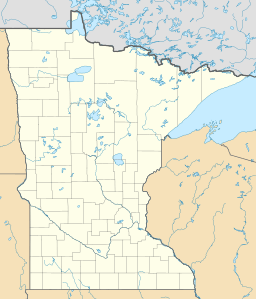Kego Lake facts for kids
Quick facts for kids Kego Lake |
|
|---|---|
| Location | Crow Wing County, Minnesota |
| Coordinates | 46°46′15″N 94°5′1″W / 46.77083°N 94.08361°W |
| Type | lake |
Kego Lake is a lovely lake found in Crow Wing County, Minnesota. This county is part of the United States state of Minnesota. Lakes like Kego Lake are natural pools of water that are completely surrounded by land. They are important parts of our planet's water system.
Contents
What's in a Name? The Meaning of Kego
The name "Kego" has a special meaning. It comes from the Ojibwe language. The Ojibwe people are a large group of Native American and First Nations people. In their language, "Kego" means "fish." This suggests that Kego Lake might have been known for its fish long ago.
Lakes: Important Water Bodies
Lakes are fascinating places. They hold fresh water, which is vital for many living things. They can be very deep or quite shallow. Some lakes are huge, like inland seas, while others are small, like Kego Lake.
How Lakes Form
Lakes can form in many ways. Some are created by glaciers that carved out hollows in the land. Others form when rivers get blocked or when volcanoes create craters that fill with water. Over time, rain and streams fill these natural dips to create lakes.
Why Lakes Matter
Lakes are very important for many reasons. They provide homes for many kinds of plants and animals. Fish, birds, and insects all depend on lakes to live. People also use lakes for fun activities like fishing, boating, and swimming. Lakes also help control floods and provide water for drinking and farming.
Kego Lake and Its Environment
Kego Lake is part of the larger natural environment of Crow Wing County. This area is known for its many lakes and forests. The health of Kego Lake depends on the health of the land around it. Protecting the lake means protecting its shores and the streams that flow into it.
Protecting Our Lakes
It's important to keep lakes clean and healthy. Pollution from trash or chemicals can harm the plants and animals that live there. We can help by not littering and by being careful with what we put into the water. Learning about lakes like Kego Lake helps us understand why they are so special and worth protecting.


